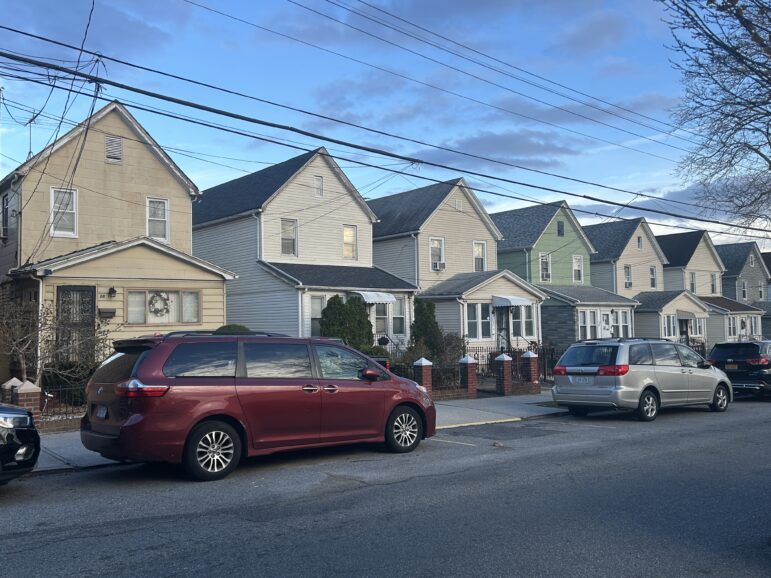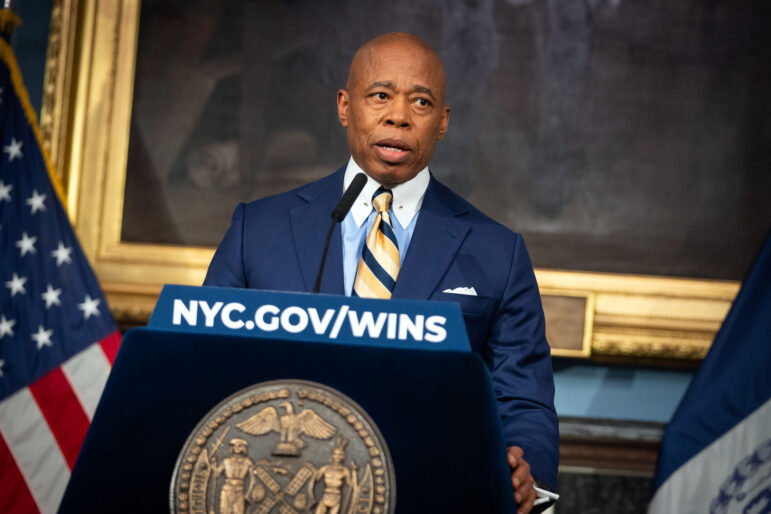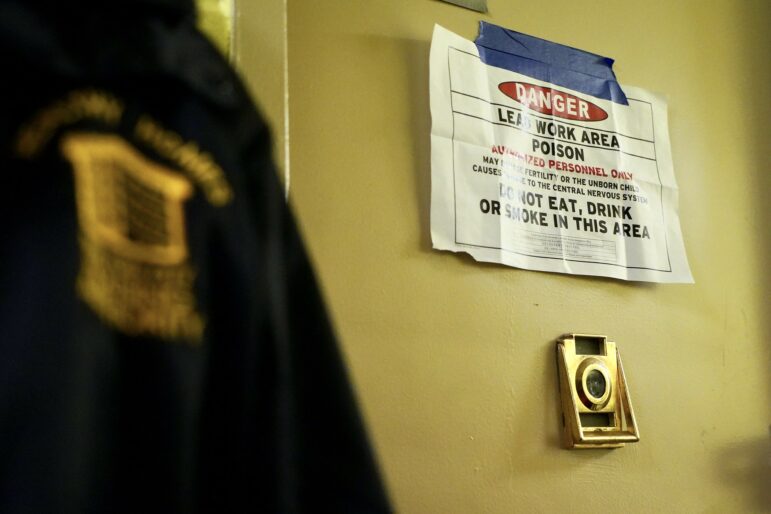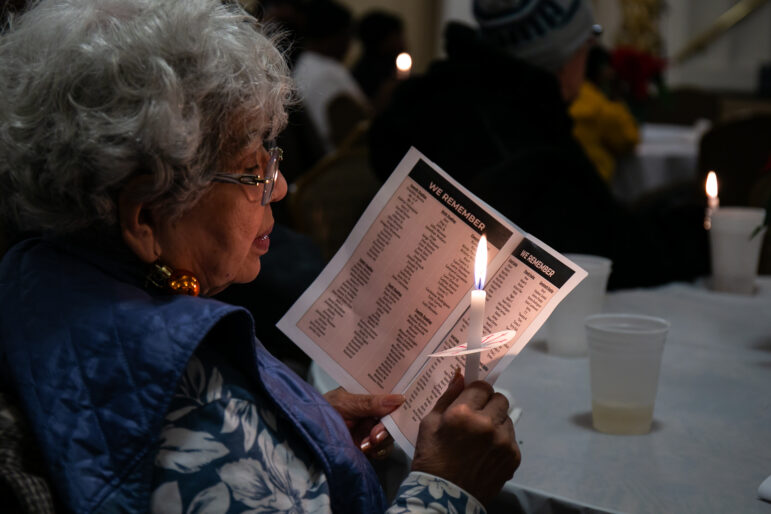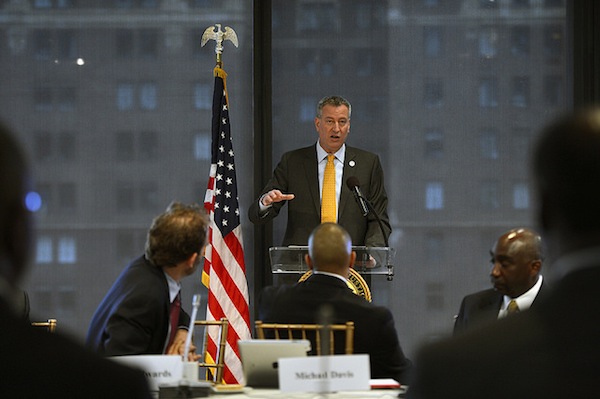
Photo by: Rob Bennett for the Office of Mayor Bill de Blasio
The mayor addressed a crowd at the Ford Foundation on Friday.
City Limits has teamed up with The Nation to cover the first 100 days of the de Blasio administration. Click here to read the series.
The 100th day of Mayor de Blasio’s term—which comes Thursday—is, of course, an arbitrary milestone. Yet after the conclusion of the state budget last week, with winter snowstorms and nasty charter-school battles out of the way, it does feel like the de Blasio narrative is entering a new phase. The first three months of the year revolved largely around the effort to get universal pre-kindergarten funded. That effort largely succeeded. Now what?
In a word, housing. As compelling as the case for UPK was, it is dwarfed by the urgency of the need for decent, affordable housing and the scale of the promises the mayor made during the campaign, where he vowed to build or preserve 190,000 units of affordable housing over 10 years. As the Associated Press pointed out last week, the pace de Blasio promised exceeds what the two previous mayors who made housing a priority, Mayor Bloomberg or Mayor Koch, were able to achieve. Housing is central to the inequality concerns that de Blasio articulated during the campaign, which are rooted in the fear that New York is becoming too expensive a place for many of us to live.
The term “first 100 days” was coined by FDR in discussing the amazing array of accomplishments during that period by a special session of Congress called early in his first term. The parallel is helpful: As the New Deal managed to touch on an astounding breadth of facets of American life, so much de Blasio’s housing plan pull together progressive proposals for all the housing issues that are often treated separately: city-subsidized housing, state-regulated stabilized housing, homelessness, housing court, housing code enforcement and, of course, public housing.
Read more about the multitude of questions that de Blasio’s housing plan could—and should—try to answer in his forthcoming housing policy.



